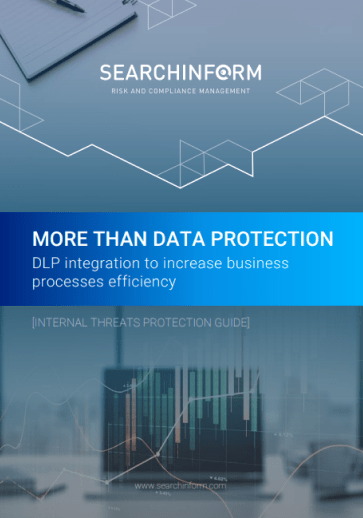The Importance of Privacy in Cybersecurity
- The Relationship Between Privacy and Cybersecurity
- How Privacy Measures Strengthen Cybersecurity
- Enhanced Data Protection
- Regulatory Compliance
- Trust and Reputation Management
- Case Studies of Privacy Breaches and Cyber Attacks
- Equifax Data Breach
- Facebook-Cambridge Analytica Scandal
- Marriott International Data Breach
- Target Data Breach
- The Cost of Poor Privacy Practices
- Financial Losses
- Reputational Damage
- Operational Disruptions
- Implementing Effective Privacy Measures
- Best Practices for Data Protection
- Data Minimization
- Secure Data Storage
- Regular Updates and Patching
- Role of Encryption and Anonymization
- Encryption
- Anonymization
- Employee Training and Awareness
- Comprehensive Training Programs
- Regular Awareness Campaigns
- Future Trends in Privacy and Cybersecurity
- Emerging Privacy Threats
- Internet of Things (IoT) Vulnerabilities
- Advanced Persistent Threats (APTs)
- Social Engineering Attacks
- The Role of AI and Machine Learning in Privacy Protection
- Predictive Analytics
- Automated Threat Detection
- Data Anonymization and Masking
- Predictions for the Next Decade
- Increased Regulatory Scrutiny
- Enhanced Encryption Techniques
- Growth of Privacy-Focused Technologies
- SearchInform's Role in Enhancing Privacy
- Comprehensive Data Loss Prevention (DLP)
- Real-Time Monitoring
- Policy Enforcement
- Insider Threat Management
- Behavioral Analysis
- Access Controls and Auditing
- Compliance with Regulatory Standards
- GDPR Compliance
- HIPAA and CCPA
- Advanced Threat Detection and Response
- Machine Learning Integration
- Incident Response
- The Future of Privacy with SearchInform
- Continuous Improvement
- Expanding Capabilities
- Conclusion
The Relationship Between Privacy and Cybersecurity
Understanding the intricate relationship between privacy and cybersecurity is crucial in today's digital era. The importance of privacy in cybersecurity lies in the fact that robust privacy measures form the bedrock of a secure digital environment. These two concepts are interdependent; effective cybersecurity policies bolster privacy, while strong privacy practices enhance overall cybersecurity.
How Privacy Measures Strengthen Cybersecurity
Privacy measures are not just about compliance; they are vital for reinforcing the security framework of any organization. By prioritizing the privacy significance, organizations can safeguard sensitive data, mitigate risks, and build trust with their stakeholders.
Enhanced Data Protection
One of the primary ways privacy measures strengthen cybersecurity is through enhanced data protection. Implementing strict data access controls, encryption, and anonymization techniques ensures that personal information is shielded from unauthorized access. This protection is crucial in preventing data breaches and identity theft.
Regulatory Compliance
Adhering to privacy regulations such as the General Data Protection Regulation (GDPR) or the California Consumer Privacy Act (CCPA) is not only a legal requirement but also a cybersecurity imperative. These regulations mandate stringent data protection measures that inherently strengthen cybersecurity practices, thereby highlighting the privacy importance in regulatory compliance.
Trust and Reputation Management
The value of privacy extends to maintaining an organization's reputation. When companies are transparent about their privacy practices and demonstrate their commitment to protecting user data, they foster trust among consumers. This trust is invaluable and can be a decisive factor in the company's long-term success.
Case Studies of Privacy Breaches and Cyber Attacks
Real-world examples of privacy breaches and cyber attacks underscore the critical need for robust privacy measures. These case studies highlight the devastating consequences of neglecting the privacy significance in cybersecurity.
Equifax Data Breach
In 2017, Equifax, one of the largest credit reporting agencies, suffered a massive data breach that exposed the personal information of over 147 million individuals. The breach was a result of a vulnerability in a web application, underscoring the importance of regular security updates and robust privacy measures. The fallout from this breach included significant financial losses, reputational damage, and regulatory penalties, emphasizing the critical value of privacy.
Facebook-Cambridge Analytica Scandal
The Facebook-Cambridge Analytica scandal is another prominent example where poor privacy practices led to a major data breach. Personal data of millions of Facebook users were harvested without consent and used for political advertising. This breach highlighted the privacy importance in protecting user data and ensuring transparent data usage policies.
Marriott International Data Breach
In 2018, Marriott International disclosed a data breach that affected approximately 500 million guests. The breach involved unauthorized access to the Starwood guest reservation database, which included sensitive information such as names, addresses, phone numbers, email addresses, passport numbers, and payment card information. The Marriott breach underscores the necessity of strong privacy measures and vigilant cybersecurity practices to protect extensive personal data collected by large organizations.
Target Data Breach
The 2013 Target data breach is another significant case where the importance of privacy was evident. Hackers accessed Target's systems and stole credit card and personal information of approximately 40 million customers during the holiday shopping season. The breach was attributed to a third-party vendor's compromised credentials, highlighting the need for rigorous privacy measures and robust cybersecurity protocols not only within the organization but also with external partners.
The Cost of Poor Privacy Practices
Neglecting privacy can result in severe financial and reputational consequences. The cost of poor privacy practices is multifaceted, affecting various aspects of an organization.

Financial Losses
The financial implications of privacy breaches are substantial. Organizations may face hefty fines from regulatory bodies, legal fees from lawsuits, and the direct costs associated with breach mitigation and recovery. For instance, the Equifax breach cost the company over $700 million in settlements and fines.
Reputational Damage
Reputational damage is another significant cost of inadequate privacy measures. When customers lose trust in an organization due to privacy violations, it can lead to a decline in customer loyalty and a tarnished brand image. This loss of trust can have long-lasting effects, making it challenging for the organization to regain its standing in the market.
Operational Disruptions
Privacy breaches can also lead to operational disruptions. The immediate response to a breach often requires diverting resources and attention from regular operations to address the incident. This diversion can hinder productivity and negatively impact the organization's overall performance.
Relationship between privacy and cybersecurity is symbiotic and indispensable. The privacy significance in cybersecurity cannot be overstated, as robust privacy measures are essential for protecting sensitive data and maintaining trust in digital interactions. By understanding and prioritizing the privacy importance, organizations can strengthen their cybersecurity posture, mitigate risks, and ensure the protection of personal information. The value of privacy is not just a regulatory requirement but a fundamental right that safeguards our freedom and security in an increasingly digital world.
Implementing Effective Privacy Measures
Importance of privacy has taken center stage in safeguarding personal and organizational data. Implementing effective privacy measures is crucial for mitigating risks and ensuring the security of sensitive information. These measures not only protect against data breaches but also enhance trust and compliance with regulatory standards.
Best Practices for Data Protection
Adopting best practices for data protection is essential for maintaining the privacy significance in an organization. These practices form the backbone of a robust privacy framework and ensure that data is handled with the utmost care.
Data Minimization
Data minimization is a principle that advocates collecting only the data that is necessary for a specific purpose. This approach limits the amount of information at risk in the event of a breach. For example, instead of storing an entire credit card number, an organization might only retain the last four digits for verification purposes. This strategy not only reduces the potential damage from a data breach but also aligns with regulations like GDPR, which emphasize the importance of privacy.
Secure Data Storage
Ensuring secure data storage is fundamental to protecting sensitive information. This includes utilizing encrypted databases, securing physical servers, and implementing strong access controls. Regular security audits are essential to identify potential vulnerabilities. These audits help in maintaining the integrity and confidentiality of data by ensuring that security measures are up to date and effective. The privacy importance of these practices cannot be overstated as they form the foundation of a secure data environment.
Regular Updates and Patching
Software vulnerabilities are a common target for cyber attacks. Regular updates and patching of software and systems are critical in closing these security gaps. Organizations should have a robust patch management process to ensure that all systems are current and protected against known vulnerabilities. This practice underscores the privacy significance of proactive maintenance in preventing data breaches.
Role of Encryption and Anonymization
Encryption and anonymization are powerful tools in the arsenal of data protection strategies. They play a vital role in ensuring the privacy significance of sensitive information.
Encryption
Encryption is the process of converting data into a code to prevent unauthorized access. This method is used extensively to protect data in transit and at rest. For instance, end-to-end encryption is used in messaging apps to ensure that only the communicating users can read the messages. The importance of privacy is underscored by encryption, as it guarantees that even if data is intercepted, it remains unreadable without the appropriate decryption key.
Anonymization
Anonymization involves altering data in such a way that it cannot be traced back to an individual. This technique is particularly useful in research and data analysis, where individual data points need to be studied without compromising personal privacy. Techniques like data masking and pseudonymization help achieve this. The value of privacy is clearly demonstrated through anonymization, as it allows data to be used for beneficial purposes while protecting individual identities.
Employee Training and Awareness
The human element is often the weakest link in cybersecurity. Therefore, employee training and awareness are paramount in enhancing the privacy importance within an organization.
Comprehensive Training Programs
Comprehensive training programs should cover a wide range of topics related to data privacy and cybersecurity. These programs can include workshops, seminars, and online courses that teach employees how to identify phishing scams, use strong passwords, and follow best practices for data handling. Regularly updating these programs to include the latest threats and regulatory changes is crucial for maintaining the privacy significance in the organization.
Regular Awareness Campaigns
Regular awareness campaigns help keep privacy importance at the forefront of employees' minds. These campaigns can be conducted through various means, such as newsletters, emails, and intranet postings. Simulated phishing exercises can also be a part of these campaigns to test and improve employees' responses to potential threats. The value of privacy is reinforced through continuous education and engagement, ensuring that employees remain vigilant and informed.
Implementing effective privacy measures is a multifaceted approach that requires attention to detail and a commitment to best practices. The privacy significance in cybersecurity cannot be overstated, as it is fundamental to protecting sensitive data and maintaining trust. By adopting best practices for data protection, leveraging encryption and anonymization, and investing in employee training and awareness, organizations can safeguard their information and uphold the value of privacy. This comprehensive approach ensures that the privacy importance is woven into the fabric of the organization, providing a robust defense against the ever-evolving landscape of cyber threats.
Future Trends in Privacy and Cybersecurity
As we continue to advance technologically, the importance of privacy in cybersecurity remains a pivotal concern. The future holds new challenges and opportunities for protecting sensitive information. Understanding emerging trends and preparing for them is essential for maintaining the privacy significance in our digital world.
Emerging Privacy Threats
With technological advancements come new threats to privacy. Emerging privacy threats are increasingly sophisticated and pervasive, requiring vigilant and proactive measures to counteract them.
Internet of Things (IoT) Vulnerabilities
The proliferation of IoT devices introduces numerous entry points for cyber attacks. Each connected device, from smart home appliances to wearable health monitors, can potentially be exploited. The privacy importance here is critical, as these devices often collect and transmit personal data, making them attractive targets for hackers. Ensuring robust security protocols and regular updates for IoT devices is paramount to safeguarding privacy.
Advanced Persistent Threats (APTs)
APTs are long-term, targeted cyber attacks aimed at stealing data or disrupting operations. These threats are typically carried out by well-funded and organized groups, often with political or economic motives. The privacy significance of protecting against APTs lies in their ability to remain undetected for extended periods, causing extensive damage. Employing advanced threat detection and response strategies is essential to mitigate these risks.
Social Engineering Attacks
Social engineering attacks manipulate individuals into divulging confidential information. Techniques such as phishing, pretexting, and baiting exploit human psychology rather than technical vulnerabilities. The value of privacy in this context is clear: educating users and implementing strong verification processes can significantly reduce the success rate of these attacks.
The Role of AI and Machine Learning in Privacy Protection
Artificial Intelligence (AI) and Machine Learning (ML) are revolutionizing the way we approach privacy protection. These technologies offer powerful tools to enhance cybersecurity measures and safeguard personal data.
Predictive Analytics
AI and ML can analyze vast amounts of data to predict and identify potential security threats. By recognizing patterns and anomalies, these technologies can preemptively address vulnerabilities. The privacy importance of predictive analytics is in its ability to prevent breaches before they occur, ensuring the continuous protection of sensitive information.
Automated Threat Detection
Automated threat detection systems leverage AI to monitor networks and detect unusual activity in real-time. These systems can respond to threats more quickly and accurately than human operators. The privacy significance here is substantial, as automated systems can effectively mitigate threats with minimal human intervention, reducing the risk of human error.
Data Anonymization and Masking
AI-driven techniques can enhance data anonymization and masking, making it more challenging for unauthorized parties to access personal information. These methods ensure that even if data is intercepted, it remains unusable. The value of privacy is thus upheld by preventing the misuse of personal data.
Predictions for the Next Decade
Looking ahead, the next decade will bring significant changes in how we approach privacy and cybersecurity. Several key trends and predictions will shape the future landscape.
Increased Regulatory Scrutiny
Governments worldwide are likely to introduce more stringent privacy regulations. The importance of privacy will be reinforced through laws that mandate comprehensive data protection measures and impose severe penalties for non-compliance. Organizations will need to stay abreast of these changes to ensure compliance and protect user data.
Enhanced Encryption Techniques
As cyber threats evolve, so will encryption technologies. We can expect the development of more advanced encryption methods to secure data against increasingly sophisticated attacks. The privacy significance of these advancements lies in their ability to safeguard information in an ever-changing threat landscape.
Growth of Privacy-Focused Technologies
There will be a surge in the adoption of privacy-focused technologies, such as decentralized systems and blockchain. These technologies offer enhanced security and transparency, making them attractive for protecting personal data. The value of privacy will be a driving force behind the development and deployment of these innovations.
Future of privacy and cybersecurity is shaped by emerging threats, technological advancements, and evolving regulatory landscapes. The privacy importance in this context cannot be overstated, as it remains a fundamental aspect of protecting sensitive information. By understanding and preparing for these future trends, organizations can enhance their cybersecurity measures and uphold the privacy significance in their operations. The value of privacy will continue to be a cornerstone of trust and security in the digital age, driving innovation and ensuring the protection of personal data for years to come.
SearchInform's Role in Enhancing Privacy
In the realm of cybersecurity, SearchInform has emerged as a formidable player dedicated to upholding the importance of privacy. Through innovative solutions and comprehensive services, the company addresses the privacy significance in protecting sensitive information. Understanding the value of privacy in today's digital landscape, SearchInform provides tools that bolster data security and ensure compliance with evolving regulations.
Comprehensive Data Loss Prevention (DLP)
One of SearchInform’s flagship offerings is its robust Data Loss Prevention (DLP) solution. This technology is pivotal in safeguarding sensitive data from unauthorized access and leaks. The importance of privacy is underscored through DLP's ability to monitor, detect, and prevent the unauthorized transmission of confidential information.
Real-Time Monitoring
SearchInform’s DLP solutions include real-time monitoring capabilities, which track data movement across networks. This constant vigilance ensures that any suspicious activity is immediately identified and addressed. The privacy importance here is paramount, as it helps in preventing data breaches before they can cause significant harm.
Policy Enforcement
The DLP system enforces data protection policies by restricting actions that could lead to data leaks. By automatically applying these policies, the system reduces the risk of human error, highlighting the value of privacy in automated compliance and security measures.
Insider Threat Management
SearchInform also excels in managing insider threats, a critical aspect of cybersecurity often overlooked. Insider threats can be particularly damaging as they come from individuals with legitimate access to sensitive data. Addressing the privacy significance, SearchInform’s tools are designed to identify and mitigate risks posed by internal actors.
Behavioral Analysis
By employing advanced behavioral analysis, SearchInform detects anomalies in user behavior that may indicate malicious intent. This proactive approach underscores the privacy importance of protecting data from within the organization. Continuous monitoring and analysis help in identifying potential threats before they materialize into actual breaches.
Access Controls and Auditing
Implementing strict access controls and comprehensive auditing capabilities, SearchInform ensures that only authorized personnel can access sensitive information. Regular audits help in maintaining transparency and accountability, further emphasizing the value of privacy in organizational operations.
Compliance with Regulatory Standards
SearchInform's solutions are designed to help organizations comply with various data protection regulations such as GDPR, HIPAA, and CCPA. The importance of privacy is legally mandated by these regulations, and non-compliance can result in hefty fines and reputational damage.
GDPR Compliance
Under GDPR, organizations are required to protect personal data and ensure privacy rights are upheld. SearchInform's tools provide the necessary infrastructure to comply with these stringent requirements. The privacy significance of GDPR compliance is immense, as it not only protects individuals but also enhances trust and credibility for organizations.
HIPAA and CCPA
For industries like healthcare, HIPAA compliance is crucial. SearchInform’s solutions ensure that health information is adequately protected, aligning with the privacy importance mandated by HIPAA. Similarly, for businesses operating in California, adherence to CCPA standards is critical. SearchInform helps in meeting these requirements, reinforcing the value of privacy in regional and sector-specific contexts.
Advanced Threat Detection and Response
In a world where cyber threats are constantly evolving, advanced threat detection and response are vital. SearchInform’s capabilities in this domain highlight the privacy significance of staying ahead of potential threats.
Machine Learning Integration
By integrating machine learning, SearchInform enhances its threat detection mechanisms. Machine learning algorithms can analyze vast amounts of data to identify patterns and anomalies that signify a threat. This advanced technology underscores the importance of privacy by ensuring proactive measures are in place to protect data.
Incident Response
When a potential breach is detected, swift incident response is critical. SearchInform's systems are designed to respond rapidly to security incidents, containing and mitigating the impact. The privacy importance of an effective incident response cannot be overstated, as it minimizes the damage and protects sensitive information from further exposure.
The Future of Privacy with SearchInform
Looking ahead, SearchInform continues to innovate, ensuring that its solutions evolve in line with emerging privacy threats and regulatory changes. The company's commitment to the privacy significance of its services positions it as a leader in the cybersecurity landscape.
Continuous Improvement
SearchInform is dedicated to continuous improvement, regularly updating its solutions to address new vulnerabilities and threats. This proactive approach reflects the ongoing importance of privacy in a dynamic digital environment.
Expanding Capabilities
By expanding its capabilities, including enhancements in AI and machine learning, SearchInform ensures that its clients are equipped with the most advanced tools for protecting privacy. The value of privacy remains a central tenet of SearchInform’s mission, driving its efforts to safeguard personal and organizational data.
Conclusion
SearchInform plays a critical role in enhancing privacy through its comprehensive cybersecurity solutions. The privacy significance of its offerings cannot be overstated, as they protect sensitive data, ensure compliance with regulations, and manage both external and internal threats. By prioritizing the importance of privacy, SearchInform not only helps organizations secure their data but also fosters trust and reliability in the digital age. The value of privacy, reinforced by SearchInform’s innovative technologies and dedicated services, remains a cornerstone of effective cybersecurity.
Protect your organization's sensitive information and ensure compliance with the latest data protection regulations by integrating SearchInform's advanced cybersecurity solutions. Embrace the importance of privacy today and safeguard your data against evolving cyber threats.
Extend the range of addressed challenges with minimum effort
Company news
SearchInform uses four types of cookies as described below. You can decide which categories of cookies you wish to accept to improve your experience on our website. To learn more about the cookies we use on our site, please read our Cookie Policy.
Necessary Cookies
Always active. These cookies are essential to our website working effectively.
Cookies does not collect personal information. You can disable the cookie files
record
on the Internet Settings tab in your browser.
Functional Cookies
These cookies allow SearchInform to provide enhanced functionality and personalization, such as remembering the language you choose to interact with the website.
Performance Cookies
These cookies enable SearchInform to understand what information is the most valuable to you, so we can improve our services and website.
Third-party Cookies
These cookies are created by other resources to allow our website to embed content from other websites, for example, images, ads, and text.
Please enable Functional Cookies
You have disabled the Functional Cookies.
To complete the form and get in touch with us, you need to enable Functional Cookies.
Otherwise the form cannot be sent to us.

Subscribe to our newsletter and receive a bright and useful tutorial Explaining Information Security in 4 steps!

Subscribe to our newsletter and receive case studies in comics!







